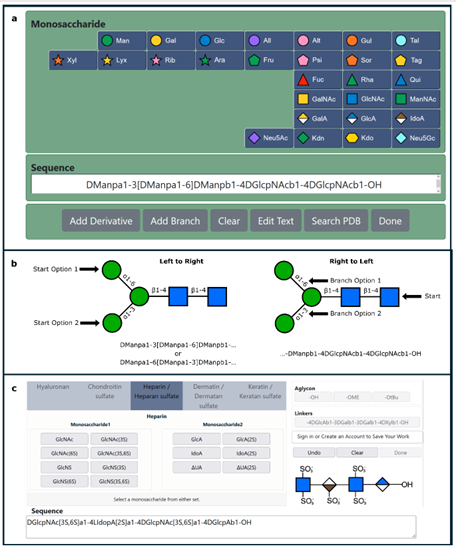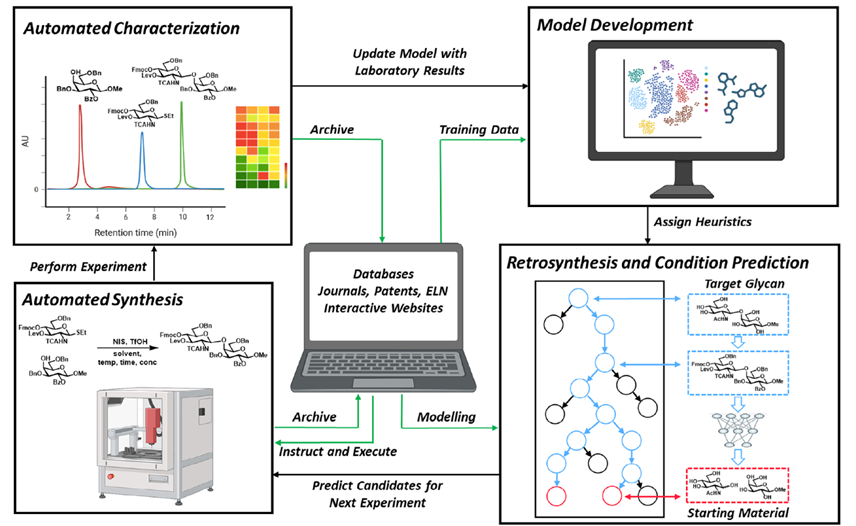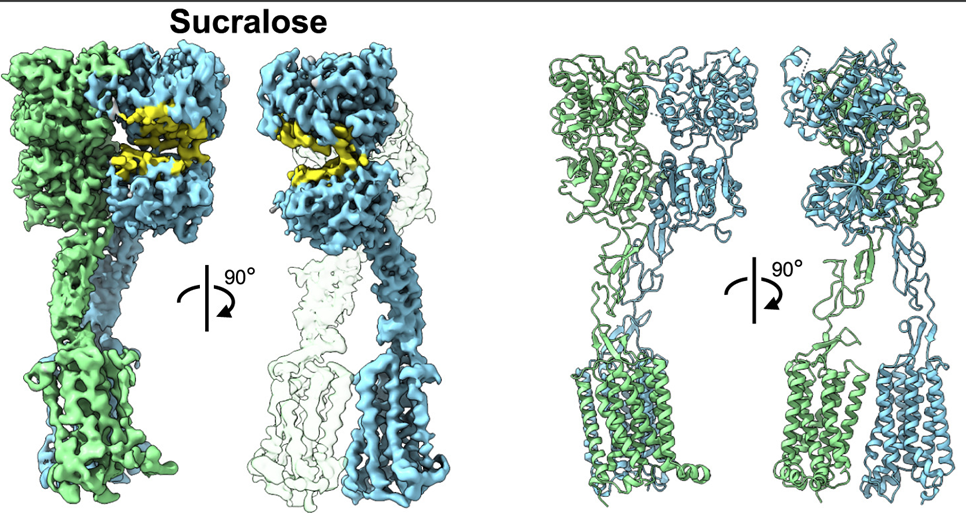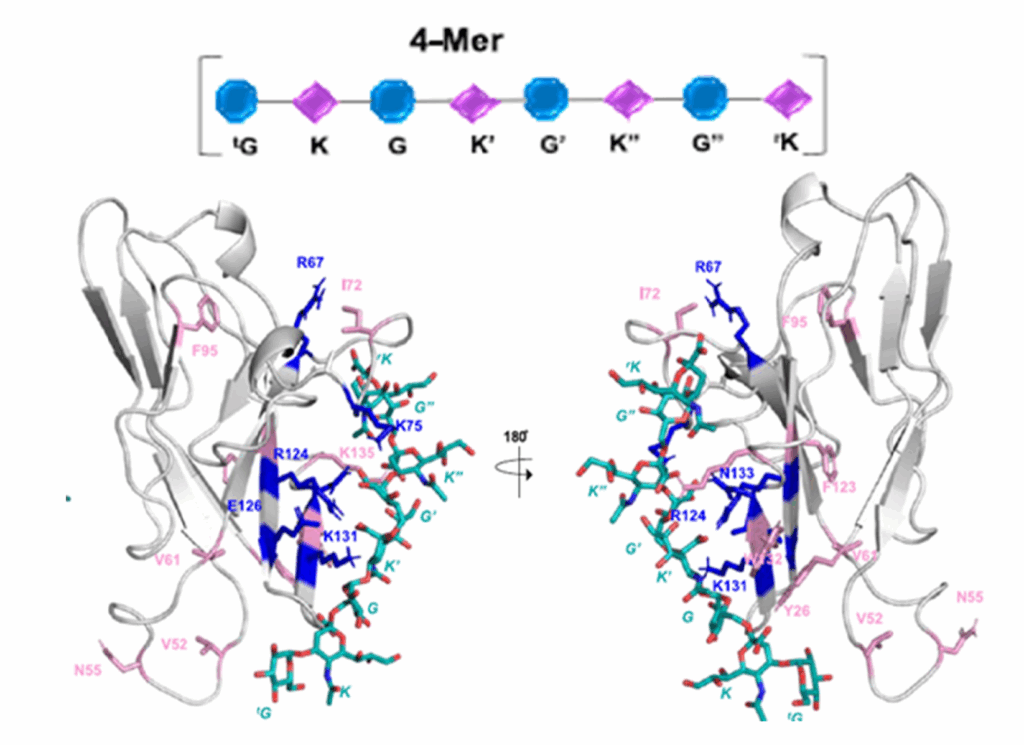A vast array of microorganisms inhabits the human intestinal tract, collectively called the “gut microbiota. The intestinal epithelium is covered by a dense layer of mucus that prevents the gut microbiota from penetrating the underlying host tissues. Recent studies have shown that the gut microbiota strongly influences the maturation and function of the mucus layer, and alterations in the structure and function of the gut microbiota have been implicated in several diseases.
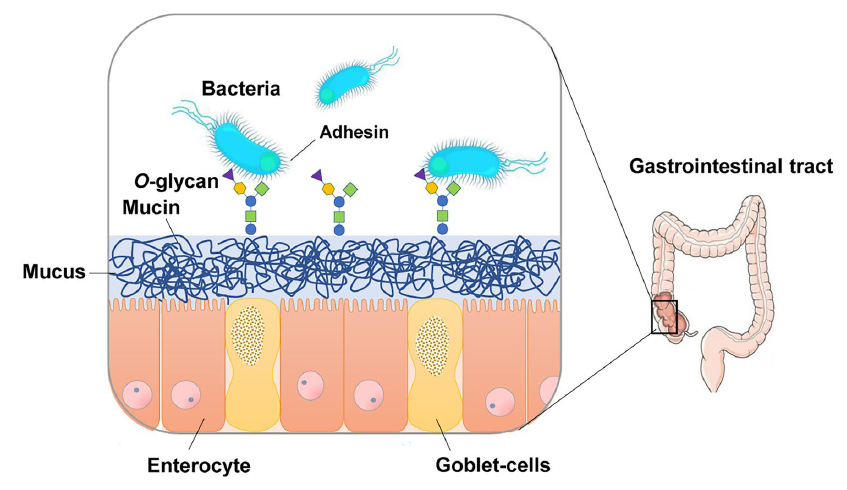
Because the intestinal mucus layer is a critical interface between microbes and their host, its disruption leads to bacterial invasion of the gut, which can ultimately cause inflammation and infection. Mucus is composed of mucin, which is rich in glycans, and the different structures of the complex carbohydrates of mucins can select for different mucosa-associated bacteria that are able to bind mucin glycans and sometimes degrade them as a nutrient source. Because mucin glycans are diverse molecules, mucin glycan degradation is a complex process that requires a wide range of glycan-degrading enzymes. Due to the increasing recognition of the role of mucus-associated microbes in human health, how commensal bacteria degrade and utilize host mucin glycans has become of increasing interest. This review provides an overview of the relationships between host mucin glycans and gut commensal bacteria, with a focus on mucin degradation

